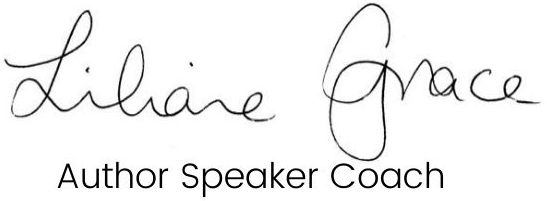 This statement was made recently by a passionate speaker during a current affairs interview. It doesn’t matter who she is – she gave voice to a popular point of view. But I disagree.
This statement was made recently by a passionate speaker during a current affairs interview. It doesn’t matter who she is – she gave voice to a popular point of view. But I disagree.
I think the reason that statement is made is because it seems to justify bullying and people hate that idea, understandably. We don’t want to align ourselves with those who deliberately set out to hurt others.
But there’s a word missing in the above statement, and that word makes all the difference. The missing word is ‘always’: ‘Bullying is not always character-building.’
In other words, our response to the event determines if it will be character-building or not. If we choose to be defeated by the event, our character will not grow; if we choose to deal with it in a more useful manner, our character will grow. It’s as simple as that. Nothing is either good or bad; it’s our response that defines it. Every event is neutral until we place a meaning on it.
Some people will object. They’ll say that cruelty and aggression and violence are always and only evil. But if you can extract some good, some insight, something positive from that bad event, it’s not purely evil.
Man’s Search For Meaning by Viktor Frankl is probably the definitive text on this topic: if you can survive a concentration camp and come out of it as a richer human being, then the event itself is not the whole truth about it. As this famous quote states:
“We who lived in the concentration camps can remember the men who walked through the huts comforting others, giving away their last piece of bread. They may have been few in number, but they offer sufficient proof that everything can be taken from a man but one thing: the last of the human freedoms – to choose one’s attitude in any given set of circumstances, to choose one’s own way.”
Viktor Frankl spent three years in concentration camps and lost his parents, his brother, and his pregnant wife. If anyone has the right to make the claim that a hellish experience can be enriching, it is he.
His conclusion was that life is not primarily a quest for pleasure, as Freud believed, or a quest for power, as Alfred Adler taught, but a quest for meaning. If we have a purpose we can live through even the most horrendous experiences, and come out the other end not as a cripple but as a stronger, more compassionate human being.
Apparently one-quarter of young Australians (those aged 14-25) are bullied;
36% of those are bullied online;
16% turn to drugs and alcohol;
23% are in the care of a GP or mental health professional;
six men under 25 years commit suicide each day.
But more people are speaking out. More effort is being made to understand and address these issues. And all of those energies and efforts are the ‘good’ that come out of the ‘bad’.
It seems to me that an important distinction needs to be made between process and outcome. The process of being bullied and dealing with that experience is unpleasant – for sure. But if the right attitudes and actions are taken to it, the outcome can be positive.
A young woman on the same current affairs programs said that when the bullying took the form of writing (online), it was ‘terrifying’ and ‘damaging for a long time’. But the terror and the damage are not inherent in the bullying; they occur in the response.
I deeply believe that Communication and Conflict Resolution Skills need to be taught in schools as a core curriculum subject from Prep to Year 12 because EVERYONE needs those skills, whatever their particular interests and vocational direction. This subject should be taught several times a week. It should take precedence over most other subjects because without these skills we can’t properly maximise our potential.
The widely respected and controversial public thinker Jordan Peterson made the statement in one of his podcasts that we are all responsible for the Columbine shootings. In particular, he said, those who bullied the shooters over the four years prior are also responsible for the deaths of all students and staff in that incident.
We will not resolve the issues of bullying, workplace harrassment, domestic violence or even terrorism if we play ‘Goodies and Baddies’. To say that all bullies are bad and the bullied are innocent victims is a mistake and not useful. What is needed here is skill-development – for both sides of the equation. And a big dose of honesty, since we’ve all played both roles.
Bullying CAN be character-building; it’s up to us to determine its effect.
Please do comment (below) and share (with attribution) if you feel this blog would be useful to others. NB Picture courtesy Visual Hunt.


Recent Comments